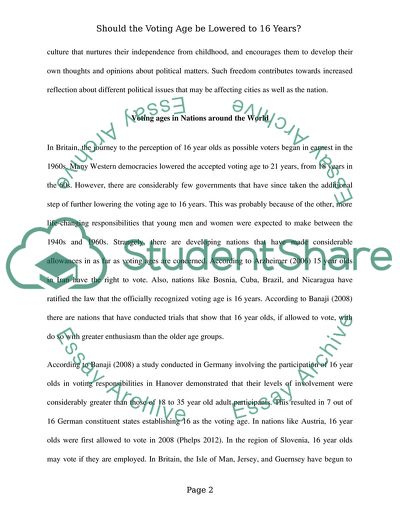Cite this document
(Should the Voting Age be lowered to 16 Years Essay Example | Topics and Well Written Essays - 3750 words, n.d.)
Should the Voting Age be lowered to 16 Years Essay Example | Topics and Well Written Essays - 3750 words. https://studentshare.org/social-science/1825831-should-the-voting-age-be-lowered-to-16
Should the Voting Age be lowered to 16 Years Essay Example | Topics and Well Written Essays - 3750 words. https://studentshare.org/social-science/1825831-should-the-voting-age-be-lowered-to-16
(Should the Voting Age Be Lowered to 16 Years Essay Example | Topics and Well Written Essays - 3750 Words)
Should the Voting Age Be Lowered to 16 Years Essay Example | Topics and Well Written Essays - 3750 Words. https://studentshare.org/social-science/1825831-should-the-voting-age-be-lowered-to-16.
Should the Voting Age Be Lowered to 16 Years Essay Example | Topics and Well Written Essays - 3750 Words. https://studentshare.org/social-science/1825831-should-the-voting-age-be-lowered-to-16.
“Should the Voting Age Be Lowered to 16 Years Essay Example | Topics and Well Written Essays - 3750 Words”. https://studentshare.org/social-science/1825831-should-the-voting-age-be-lowered-to-16.


